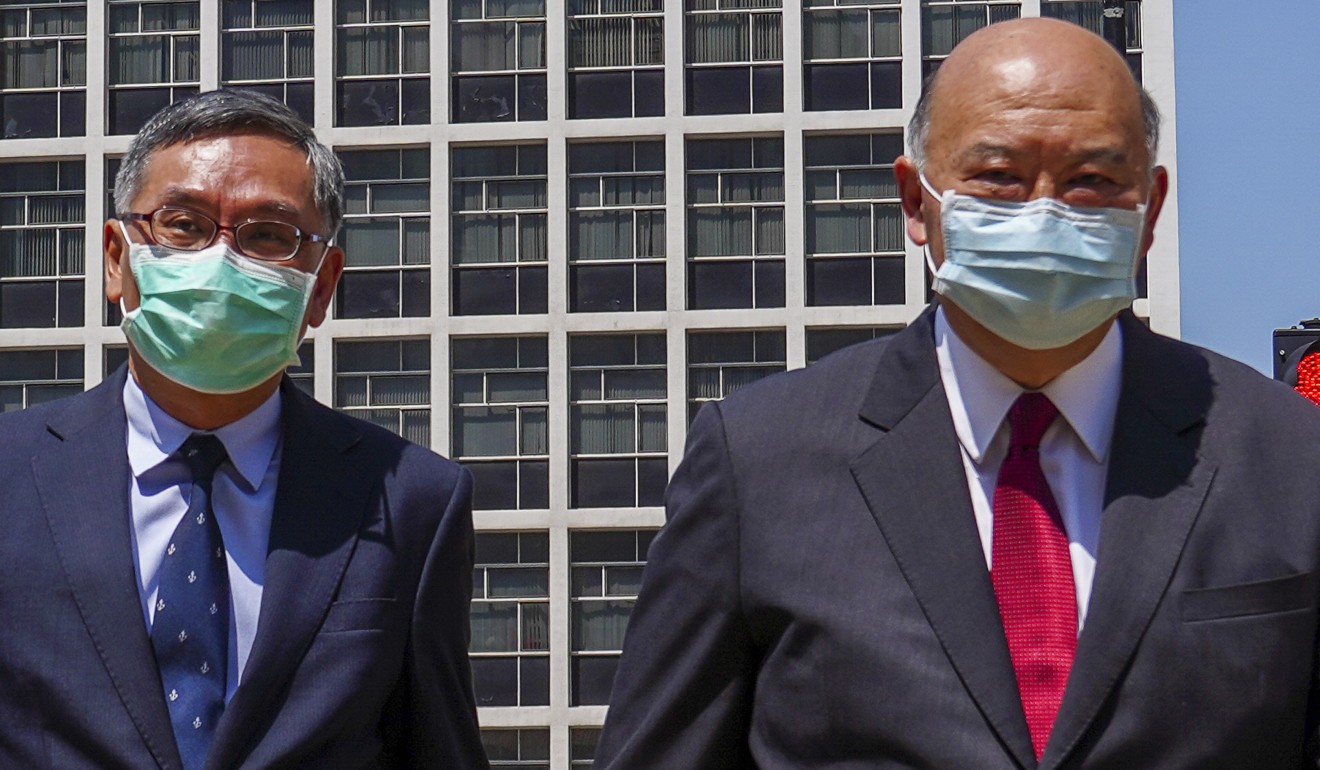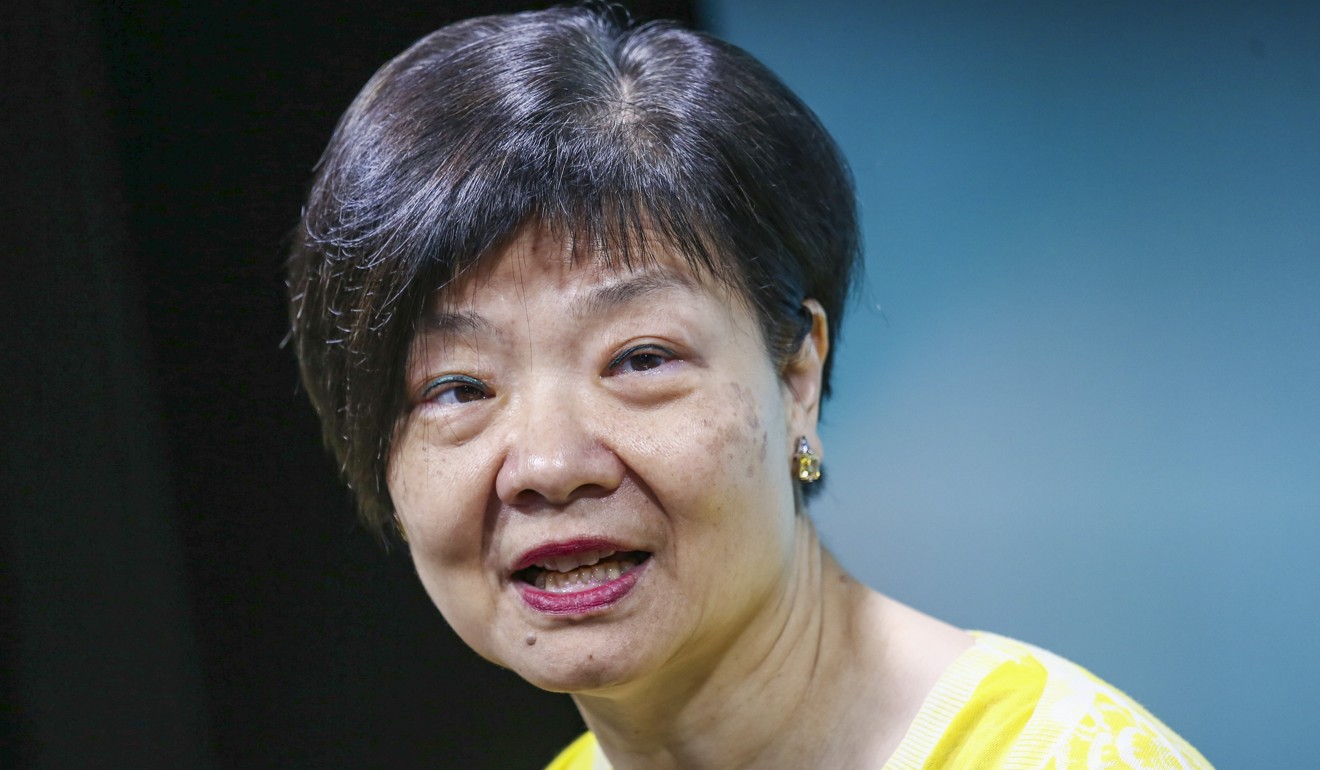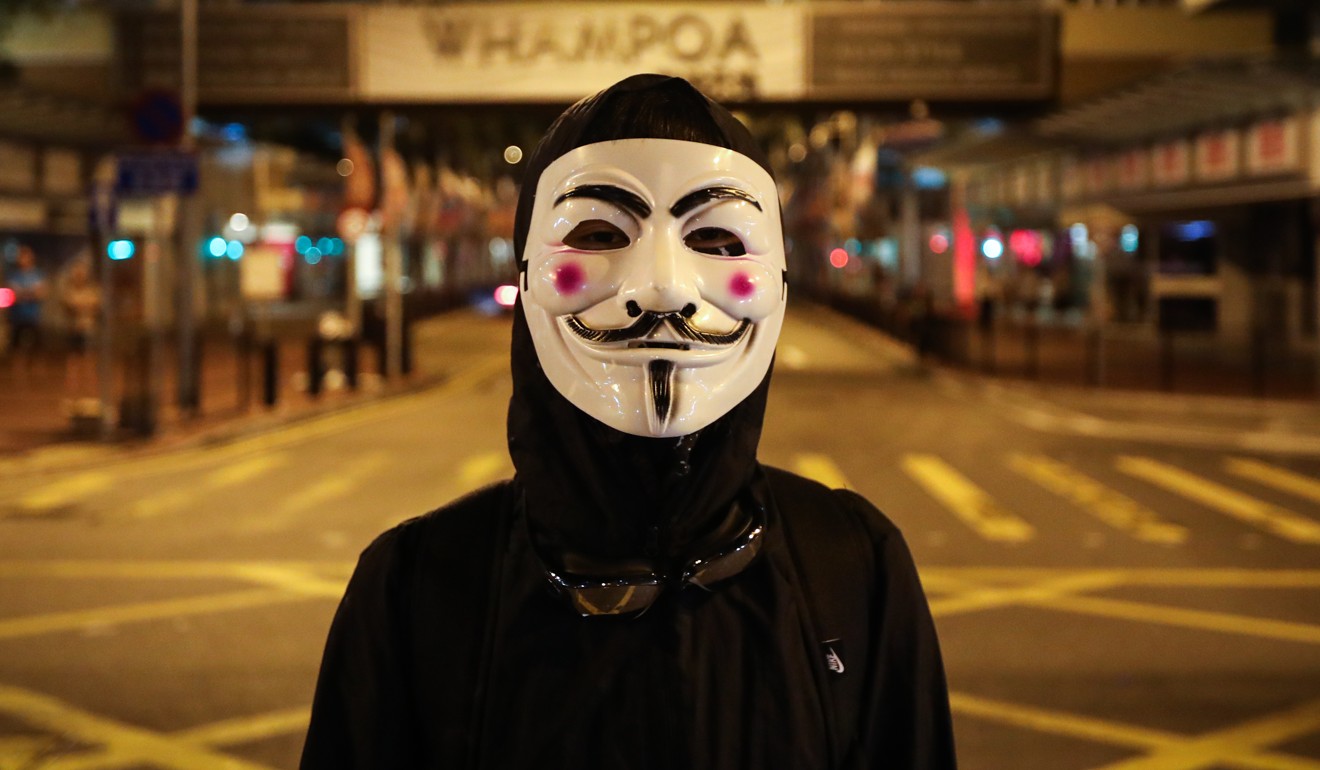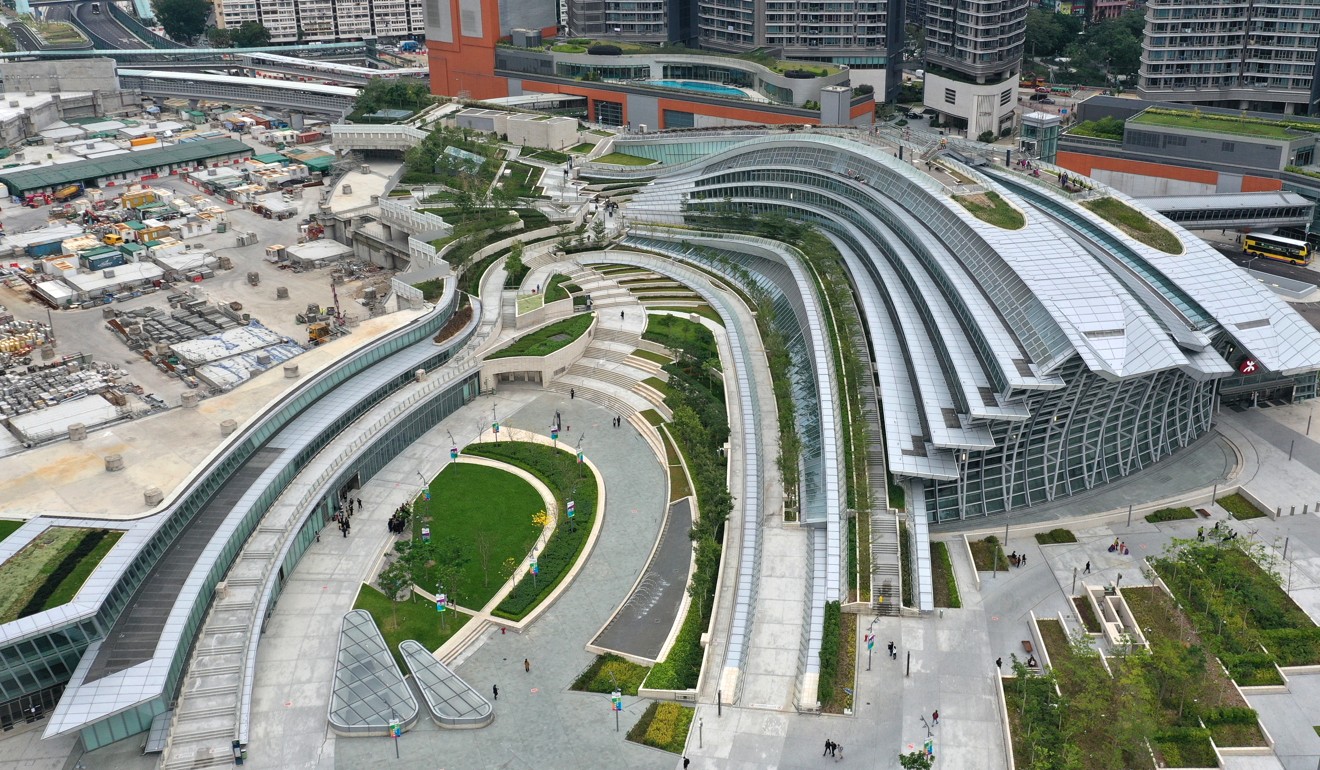
Hong Kong’s next chief justice Andrew Cheung will have to deal with several cases involving key constitutional disputes
- The city’s incoming top judge is viewed as competent but conservative
- In his past judgments, he had defended the heterosexual marriage system although he had also ruled some key social policies as discriminatory
Hong Kong’s incoming top judge is widely regarded within the legal profession as a competent yet conservative member of the judiciary, according to fellow lawyers who had worked or studied with him.
Mr Justice Andrew Cheung Kui-nang, 58, will be tasked to lead the top court through an increasing number of cases of constitutional importance, which comes at time when Beijing is increasingly vocal about the city’s legal system.
Cheung will be the first “home-grown” chief justice, succeeding incumbent Geoffrey Ma Tao-li from next January, pending the legislature’s approval.
Cheung, who graduated from the University of Hong Kong in 1983 and obtained his postgraduate certificate in law there the next year, was admitted as a barrister in 1985.

His classmates in the same year included Mr Justice Johnson Lam Man-hon, High Court’s vice-president, and Winnie Tam Wan-chi SC, former chairwoman of the Hong Kong Bar Association.
“He was always polite, quiet but not without a good sense of humour, very religious, and maintained a good relationship with every one,” Tam said of her former classmate.
Lam is also the front-runner to join the Court of Final Appeal’s bench as the permanent judge, Cheung’s current position.
During his private practice, Cheung had taken up mostly commercial and civil cases, including those related to personal injuries. He also joined the chambers of Henry Litton QC who later became a judge at the Court of Final Appeal.
While Cheung became a judge in 2001, he had yet to be admitted as a senior counsel, an honour in the profession.

Neville Sarony SC, whom Cheung served as his junior barrister in one of his last cases in private practice, said the judiciary at the time was anxious to strengthen the High Court bench with suitable local lawyers.
“He could have asked to take silk and then go into the bench but I suspect that his sense of obligation to the community drove him to accept the invitation. As with all the really able High Court appointments, it meant a big drop in income,” Sarony told the Post.
Cheung was widely regarded as a high-flyer while on the bench. He first served as a District Court judge from 2001, and it took him only two years to be appointed to the High Court’s Court of First Instance in 2003.
He was appointed as the High Court’s chief judge from 2011 to 2018. Although he had been tasked with hearing judicial reviews since 2008, his administrative experience at the time was one of the key reasons that impressed Ma the chief justice, according to legal sources.
Andrew Cheung to be Hong Kong’s next chief justice
In his past judgments, Cheung had defended the heterosexual marriage system, although he had also ruled some key social policies, such as the comprehensive social security allowance, as discriminatory.
In his 2017 ruling in favour of a married British lesbian who was denied a dependant visa by Hong Kong’s Immigration Department, Cheung stressed that marriage under Hong Kong law must be between a man and a woman, which is protected by the mini-constitution, the Basic Law.
But he also said the dispute at the time was a matter of “immigration policy”, where a place must not only consider local but foreign positions that accepted same-sex marriage or civil unions.

In 2016, the appeal court, chaired by Cheung, upheld a local court’s judgment against the city’s lawmakers Yau Wai-ching and Sixtus Baggio Leung Chung-hang, where they were found afoul of oath-taking in the legislature.
Cheung said in his judgment at the time that the pair failed to properly take their oath under both local laws and the interpretation issued by China’s top legislative body, the National People’s Congress’ Standing Committee (NPCSC), and therefore should be disqualified.
Several veteran barristers had described Cheung as a conservative judge.
“His judgments are relatively conservative,” said former Bar chairman Edward Chan King-sang SC. “He’s more involved in the administrative work. But whether he could live up to the duties as chief justice of Hong Kong, it depends on whether he could stand up against political pressure like those faced by chief justice Ma and former chief justice Andrew Li Kwok-nang.”
Sarony said: “He tends to a more conservative approach but he is a sound lawyer. In that respect he is similar to his predecessors.”
Hong Kong’s next chief justice: call to consider non-judges too
In a rare public speech which he gave at the University of Hong Kong last September, Cheung questioned the legal sectors’ conventional approach to analysing human rights cases, noting that they might have overlooked how the other rights were involved.
Cheung said the balancing exercise in human rights, known as the proportionality test, had typically applied to give what he called an “incomplete picture of what is at stake”.
“Applying the single proportionality test which by nature seeks only to give maximum protection to the fundamental right asserted by the individual suing would obscure the fact that other competing fundamental rights are also engaged which equally deserve maximum protection,” he said.
He raised the example where district councillor Christine Fong Kwok-shan was found guilty of protesting inside the Legislative Council. The court at the time found the Legco chamber to be a private area, and Cheung said this was the preferred way as private ownership was also a fundamental right.
He warned that in the conventional approach, the court “unfairly favours one right or one right-holder over others” in the eyes of the public.

Audrey Eu Yuet-mee SC, who is also Cheung’s first pupil-master, a role similar to mentor, said Cheung was experienced in judicial administration.
“Our greatest hope is that at shaky and difficult times like these, he can lead the judiciary to rebuild our confidence in the rule of law and judicial independence,” Eu said.
Former secretary for justice Rimsky Yuen Kwok-keung, who once joined Cheung during visits to the mainland Chinese courts, praised Cheung as “a very good choice” and defended him against the sceptics.
“Sometimes, it is difficult to draw the line between ‘conservative’ or ‘prudent’. Besides, an appropriately prudent manner of developing our jurisprudence may not be a bad thing.”
Sometimes, it is difficult to draw the line between ‘conservative’ or ‘prudent’
Two leading lawyers, who once appeared before Cheung and declined to be named, said he appeared to be the best out of the limited choice of candidates.
“Cheung has yet to prove himself to be of the same calibre of Andrew Li and Geoffrey Ma, but he can demonstrate that in the future,” the first lawyer said.
The second, a senior criminal lawyer, hoped there would be a smooth transition. “We won’t expect the top judge to be ‘ultraliberal’, but just don’t be ultraconservative either,” he said.
Several cases of key constitutional dispute could eventually end up in the Court of Final Appeal.
They include the appeal against the government’s controversial mask ban. At the Court of First Instance, judges ruled the law to be unconstitutional, which put the chief executive’s power to declare emergency law in legal limbo.
Hong Kong court lifts mask ban, refusing request to suspend earlier ruling
The judgment later attracted criticisms from the NPCSC’s legal affairs commission, which said the court had no power to rule on constitutional matters.
The Court of Appeal had heard an appeal hearing in January, but has yet to deliver a judgment.
The appeal court will also hear the appeal on co-location arrangements of mainland and local checkpoints at the West Kowloon terminus, where mainland laws are applied in part of the station for a cross-border railway.
At the High Court, activists have also launched legal challenges against police’s lack of identification in protests and the police watchdogs.
Cheung is married with three children. His eldest daughter Prisca is a barrister in Sir Oswald Cheung’s Chambers, his youngest son John is a pupil barrister at the Temple Chambers, while his second daughter is reportedly a musician.
Purchase the China AI Report 2020 brought to you by SCMP Research and enjoy a 20% discount (original price US$400). This 60-page all new intelligence report gives you first-hand insights and analysis into the latest industry developments and intelligence about China AI. Get exclusive access to our webinars for continuous learning, and interact with China AI executives in live Q&A. Offer valid until 31 March 2020.

